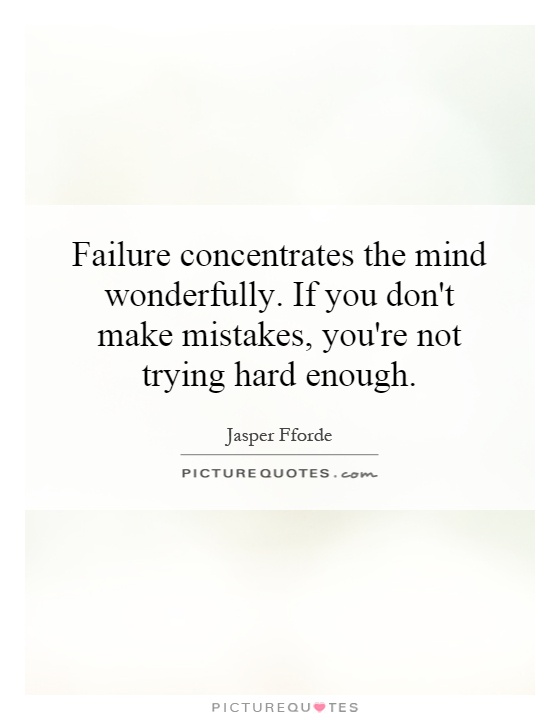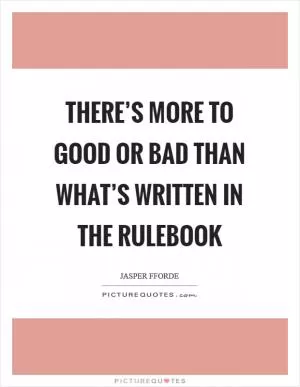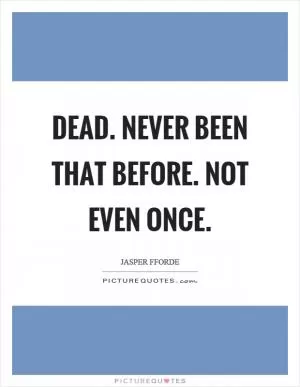Failure concentrates the mind wonderfully. If you don't make mistakes, you're not trying hard enough

Failure concentrates the mind wonderfully. If you don't make mistakes, you're not trying hard enough
Failure is often seen as a negative outcome, something to be avoided at all costs. However, the quote "Failure concentrates the mind wonderfully. If you don't make mistakes, you're not trying hard enough" suggests that failure can actually be a valuable learning experience. It forces us to reevaluate our approach, identify our weaknesses, and make necessary adjustments in order to improve and ultimately succeed.When we are too afraid to make mistakes, we may become complacent and stagnant in our efforts. We may stick to what is safe and familiar, avoiding risks and challenges that could lead to growth and innovation. By pushing ourselves to try new things and take on difficult tasks, we are more likely to encounter failure. But it is through these failures that we gain valuable insights and develop the resilience and determination needed to overcome obstacles and achieve our goals.
Failure can be a powerful motivator, pushing us to work harder and smarter in order to avoid repeating the same mistakes. It forces us to confront our limitations and push beyond our comfort zones. In this way, failure can be a catalyst for personal and professional growth, leading to greater success in the long run.
The idea that "if you don't make mistakes, you're not trying hard enough" challenges us to embrace failure as a natural part of the learning process. It encourages us to take risks, experiment, and push ourselves beyond our perceived limits. By reframing failure as a necessary stepping stone on the path to success, we can cultivate a growth mindset that allows us to learn from our mistakes and become more resilient in the face of adversity.












 Friendship Quotes
Friendship Quotes Love Quotes
Love Quotes Life Quotes
Life Quotes Funny Quotes
Funny Quotes Motivational Quotes
Motivational Quotes Inspirational Quotes
Inspirational Quotes